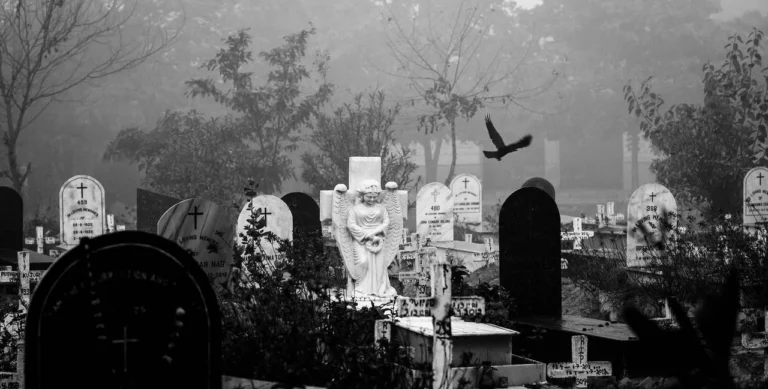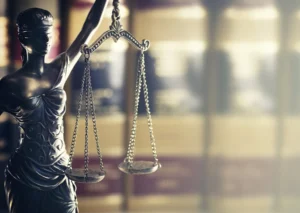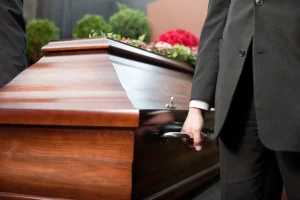Wrongful Death Lawyer Florida

Losing a loved one due to the negligence or wrongful actions of another is a devastating experience that can leave families grappling with emotional and financial challenges. In such difficult times, pursuing a wrongful death claim in Florida may provide a sense of justice and financial stability for the surviving family members. At Weston & Pape, our compassionate team of wrongful death lawyers understands the complexities of these cases and is here to offer guidance and support. With our extensive experience in handling wrongful death claims in Florida, we are dedicated to helping families navigate the legal process and seek the compensation they deserve. If you’ve lost a loved one due to negligence, don’t hesitate to contact us at 561-299-3999 for a free consultation. Let us be your trusted advocates during this difficult time.
Understanding the Process of Pursuing a Wrongful Death Claim in Florida
Losing a loved one due to someone else’s negligence is a devastating experience, and navigating the legal process of a wrongful death claim can add to the emotional burden. If you find yourself in this situation in Florida, it’s essential to understand what to expect during the process of pursuing a wrongful death claim. Here, we’ll provide a comprehensive overview of the steps involved and the key considerations to keep in mind:
Initial Consultation
The first step in pursuing a wrongful death claim is to consult with an experienced attorney who specializes in this area of law. During the initial consultation, the attorney will gather information about the circumstances surrounding your loved one’s death, evaluate the strength of your case, and explain your legal options.
Investigation
Once you’ve retained legal representation, your attorney will conduct a thorough investigation into the cause of your loved one’s death. This may involve gathering evidence such as police reports, witness statements, medical records, and expert opinions to establish liability and determine the extent of damages.
Identifying Responsible Parties
In a wrongful death claim, it’s essential to identify all parties who may be liable for your loved one’s death. This could include individuals, businesses, government agencies, or other entities whose negligence contributed to the fatal accident or incident.
Filing the Claim
After completing the investigation and identifying the responsible parties, your attorney will file a wrongful death claim on behalf of the deceased person’s estate. In Florida, wrongful death claims must be filed within a specific time frame known as the statute of limitations, which is typically two years from the date of death.
Negotiation and Settlement
In many cases, the parties involved in a wrongful death claim will attempt to reach a settlement through negotiations rather than going to trial. Your attorney will engage in negotiations with the opposing party or parties to seek fair compensation for your losses, including medical expenses, funeral and burial costs, lost income, and pain and suffering.
Litigation
If a settlement cannot be reached through negotiations, the case may proceed to litigation. Your attorney will represent you in court, presenting evidence and arguments to support your claim and advocating for your rights before a judge and jury.
Distribution of Compensation
If your wrongful death claim is successful, any compensation awarded will be distributed to the beneficiaries of the deceased person’s estate according to Florida’s wrongful death statute. This typically includes surviving spouses, children, parents, and other dependents who suffered losses as a result of the death.
Closure and Healing
While pursuing a wrongful death claim cannot bring back your loved one, it can provide a sense of justice and closure for you and your family. Additionally, the compensation obtained through a successful claim can help alleviate financial burdens and provide for the future needs of surviving family members.
Pursuing a wrongful death claim in Florida is a complex and emotional process, but with the guidance of an experienced attorney, you can navigate the legal system with confidence. By understanding what to expect and having a knowledgeable advocate by your side, you can seek justice for your loved one and hold negligent parties accountable for their actions. If you’ve lost a loved one due to someone else’s negligence, don’t hesitate to seek the assistance of a trusted wrongful death attorney who will fight tirelessly to protect your rights and help you obtain the compensation you deserve.
Understanding Compensation Options
Losing a loved one due to negligence is a tragic and emotionally challenging experience. In such cases, pursuing a wrongful death claim can help provide financial stability and a sense of justice for the surviving family members. In Florida, various types of damages may be recoverable in a wrongful death claim, aiming to compensate for the losses suffered as a result of the untimely death. Here, we’ll delve into the different types of damages that can be sought in a wrongful death claim in Florida:
Economic Damages
Economic damages in a wrongful death claim are intended to compensate for the financial losses incurred by the surviving family members due to the death of their loved one. This may include:
- Medical expenses: Any medical bills incurred for the treatment of the deceased person’s final injury or illness.
- Funeral and burial expenses: Costs associated with the funeral, cremation, burial plot, headstone, and related services.
- Lost income: Compensation for the deceased person’s lost wages and benefits, including future earnings they would have contributed to the household.
Non-Economic Damages
Non-economic damages aim to compensate for the intangible losses and emotional suffering experienced by the surviving family members. These may include:
- Pain and suffering: Compensation for the physical pain and emotional distress endured by the deceased person before their death.
- Loss of companionship: Compensation for the loss of the deceased person’s companionship, guidance, and emotional support.
- Loss of consortium: Compensation for the loss of the deceased person’s marital relationship, including the loss of intimacy and companionship.
Punitive Damages
In some cases involving egregious misconduct or intentional wrongdoing, punitive damages may be awarded to punish the at-fault party and deter similar behavior in the future. Punitive damages are not intended to compensate the surviving family members but rather to punish the defendant and send a message that such conduct will not be tolerated.
Survival Damages
Survival damages refer to the compensation that the estate of a deceased person can recover for the losses suffered by the individual between the time of the injury and their eventual death. These damages serve to recognize the hardships that the deceased person experienced before their passing, as well as the financial losses incurred during that period. When a person is involved in an accident or suffers an injury that leads to their death, the estate of the deceased may be entitled to recovery for a variety of damages that reflect both the emotional and physical suffering the individual endured before passing. The estate may claim survival damages through a legal action brought on behalf of the deceased, typically handled by the representative of their estate or a personal representative appointed for this purpose.
One of the primary categories of survival damages is pain and suffering. Pain and suffering refer to the physical and emotional distress experienced by the deceased individual as a direct result of the injury or illness leading to their death. This includes not only the pain from physical injuries but also the mental and emotional anguish endured during the period between the injury and death. For example, if the person suffered from severe pain, had to undergo multiple surgeries, or endured long periods of discomfort before their passing, the estate can seek compensation for those experiences. In some cases, the deceased may have also suffered from psychological distress, including depression, anxiety, or fear related to their injury or illness. The surviving family members or estate representatives may present evidence such as medical records, testimony from healthcare providers, or the testimony of the decedent’s loved ones to demonstrate the extent of the pain and suffering that was endured.
Another key component of survival damages is the reimbursement of medical expenses. This includes any medical bills incurred by the deceased individual for treatment of the injury or illness that ultimately caused their death. These medical expenses can include hospital stays, surgeries, medications, physical therapy, diagnostic tests, and any other treatments that were required in an attempt to alleviate the injury or prolong life. For example, if the deceased underwent extensive treatment such as surgeries, cancer treatments, or other interventions prior to death, the estate may seek compensation for those medical bills. This aspect of survival damages can be particularly important in cases where the injury or illness required prolonged medical care, as the expenses may have been substantial.
Additionally, lost wages or loss of earning capacity may also be part of the survival damages claim. If the deceased person was unable to work during the period between the injury and their death, their estate could seek compensation for the income that would have been earned during that time. In some cases, if the deceased was unable to continue working due to their injuries and experienced a diminished earning capacity, the estate may also seek compensation for future lost earnings that would have been expected had the individual not been injured or passed away prematurely. This aspect of survival damages takes into account the financial impact of the deceased person’s inability to work and the potential loss of future income that would have supported their family.
Another potential element of survival damages is funeral expenses. While funeral expenses are typically covered by a wrongful death claim, they may sometimes be included in the survival damages if there is a clear connection between the funeral costs and the injury or illness leading to the death. For example, if the decedent’s funeral was directly tied to the cause of death from a personal injury, the estate could include the funeral expenses as part of the recovery.
In addition to these types of damages, survival damages can also include compensation for any other out-of-pocket expenses the deceased person may have incurred as a result of their injury, such as the cost of hiring personal care services, home modifications to accommodate a disability caused by the injury, or transportation costs to and from medical appointments.
In general, survival damages aim to compensate the deceased person for the pain, suffering, and financial losses they endured during their final days. However, it is important to note that these damages are distinct from wrongful death damages, which are intended to compensate surviving family members for the loss of their loved one. The primary difference is that survival damages focus on the deceased person’s own experience, while wrongful death damages focus on the emotional and financial impact of the death on surviving family members.
In many cases, calculating survival damages can be complex, as it requires detailed documentation of the medical treatments, pain, and suffering the deceased endured before their passing. Expert testimony from healthcare professionals, as well as personal accounts from family and friends, may be necessary to fully substantiate the claim. If you are dealing with a potential survival damages case, it is important to consult with an experienced attorney who can guide you through the legal process, help gather the necessary evidence, and ensure that you seek fair compensation for the damages suffered by the deceased.
It’s important to note that the specific types and amounts of damages recoverable in a wrongful death claim may vary depending on the circumstances of the case and the applicable laws in Florida. Additionally, the process of pursuing a wrongful death claim can be complex, requiring the expertise of an experienced attorney who specializes in this area of law.
If you’ve lost a loved one due to negligence, seeking the guidance of a knowledgeable wrongful death attorney can help you understand your rights and pursue the compensation you deserve. An attorney can assess the details of your case, gather evidence, and advocate on your behalf to ensure that you receive fair compensation for your losses. While no amount of compensation can undo the pain of losing a loved one, it can provide financial stability and a sense of justice for the surviving family members.
Speak to a Wrongful Death Attorney in Florida
Navigating the legal complexities of a wrongful death claim in Florida can be overwhelming, especially in the midst of grieving the loss of a loved one. At Weston & Pape, our dedicated team of wrongful death attorneys is here to provide you with the guidance, support, and advocacy you need during this difficult time. With our compassionate approach and unwavering commitment to pursuing justice for our clients, we will fight tirelessly to hold negligent parties accountable and help you obtain the compensation you deserve for your loss. If you’ve lost a loved one due to negligence or wrongdoing, don’t hesitate to contact us at 561-299-3999 for a free consultation. Let us be your trusted advocates and help you navigate the legal process with compassion and integrity.



 Call Us Today - It's Free
Call Us Today - It's Free